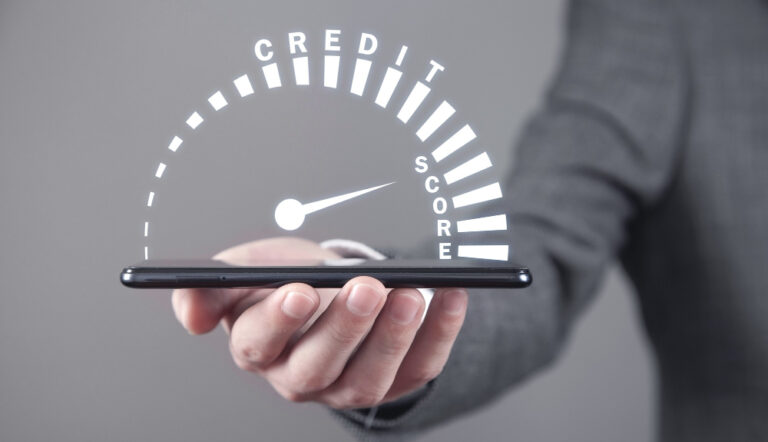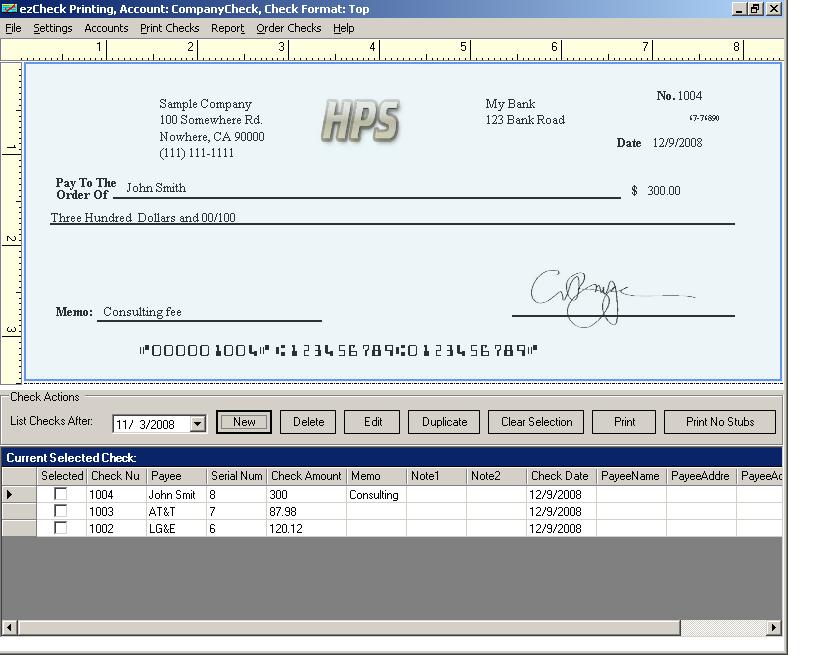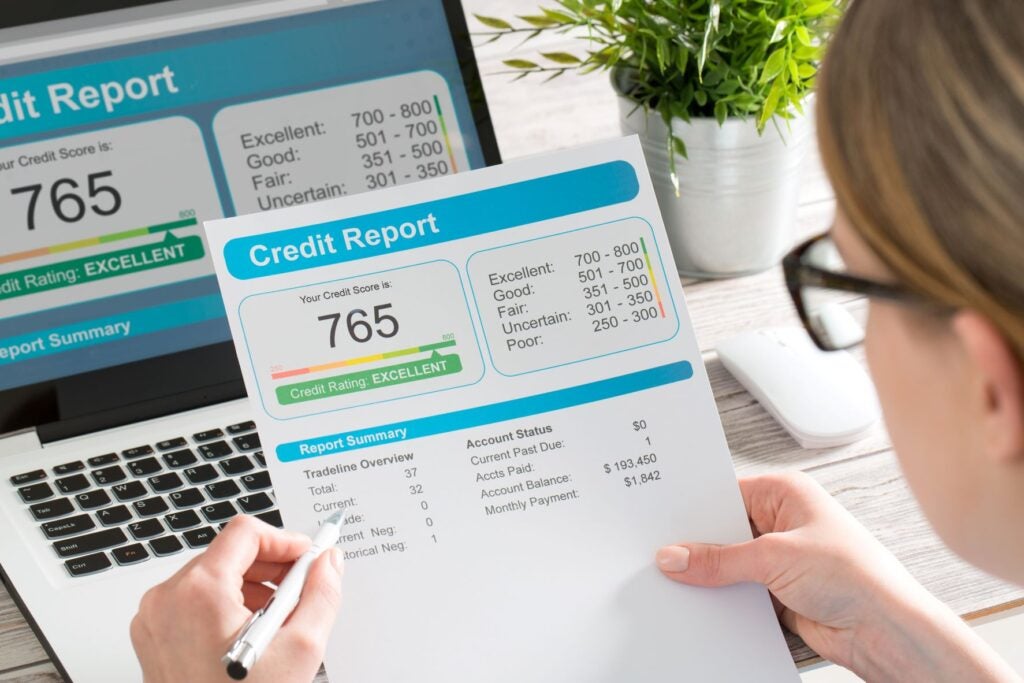Business credit check software is an indispensable tool for businesses looking to make informed decisions about their partners, customers, and suppliers. This software empowers companies to assess the financial health and creditworthiness of potential collaborators, minimizing risk and fostering trust in business relationships.
From evaluating potential investors to managing accounts receivable, business credit check software provides a comprehensive view of a company’s financial standing. By analyzing credit reports, payment histories, and other relevant data, businesses can gain insights into a company’s creditworthiness, risk profile, and overall financial stability.
What is Business Credit Check Software?
Business credit check software is a tool that helps businesses assess the financial health and creditworthiness of other companies. It provides insights into a company’s payment history, credit score, financial statements, and other relevant data. This information is crucial for making informed decisions about extending credit, entering into business partnerships, or investing in a company.
Business credit checks are essential in various industries, particularly those involving significant financial transactions or extended payment terms. For instance, in industries like wholesale, manufacturing, and retail, businesses often need to extend credit to customers. Using business credit check software allows them to evaluate the risk associated with each customer and make informed decisions about granting credit. Similarly, in the lending industry, banks and financial institutions rely heavily on business credit checks to assess the creditworthiness of loan applicants.
Key Features and Functionalities
Business credit check software offers a wide range of features and functionalities designed to streamline the credit assessment process and provide comprehensive insights. Here are some of the key features:
- Credit Report Access: The software provides access to comprehensive credit reports from reputable credit bureaus, such as Dun & Bradstreet, Experian, and Equifax. These reports contain detailed information about a company’s payment history, credit score, public records, and other relevant data.
- Financial Statement Analysis: Some software tools allow users to analyze a company’s financial statements, including income statements, balance sheets, and cash flow statements. This analysis helps assess the company’s financial health and identify potential risks or opportunities.
- Risk Scoring and Alerts: The software can calculate risk scores based on a company’s credit history and financial data. It can also generate alerts when a company’s creditworthiness changes significantly, allowing businesses to monitor potential risks proactively.
- Business Verification and Due Diligence: The software can verify the legitimacy of a company and perform due diligence checks, such as verifying its legal status, business registration, and ownership information.
- Industry-Specific Data: Some software tools offer industry-specific data and insights, providing tailored information for specific industries or sectors.
- Reporting and Analytics: The software can generate reports and analytics based on the credit check data, allowing businesses to track trends, identify patterns, and make data-driven decisions.
- Integration with Other Systems: The software can integrate with other business systems, such as customer relationship management (CRM) platforms or accounting software, to streamline workflows and automate tasks.
Benefits of Using Business Credit Check Software
Business credit check software is a powerful tool that can significantly benefit businesses of all sizes. By providing valuable insights into the financial health and creditworthiness of potential partners, customers, and suppliers, this software streamlines decision-making processes and mitigates risks.
Risk Assessment and Decision-Making
Business credit check software plays a crucial role in risk assessment and decision-making. By providing detailed financial information about a company, it helps businesses make informed decisions about extending credit, entering into contracts, or pursuing business partnerships. The software analyzes various financial factors, including credit history, payment patterns, and financial statements, to assess a company’s creditworthiness and identify potential risks. This information allows businesses to evaluate the likelihood of a company defaulting on its obligations and make more informed decisions about potential business relationships.
Credit Analysis
Credit analysis is a critical aspect of managing business finances. Business credit check software simplifies this process by providing comprehensive credit reports that offer detailed insights into a company’s financial health. The software analyzes factors such as credit scores, payment history, and financial statements to assess a company’s creditworthiness. This information allows businesses to evaluate the risk associated with extending credit to a particular company and set appropriate credit limits.
Fraud Prevention
Business credit check software is a valuable tool for fraud prevention. By providing insights into a company’s financial history and activities, the software can help businesses identify potential fraudulent activities. For instance, the software can detect inconsistencies in financial statements, identify companies with a history of fraudulent behavior, and alert businesses to potential red flags. This information allows businesses to take proactive measures to prevent fraud and protect their assets.
Customer Relationship Management
Business credit check software can also enhance customer relationship management (CRM) efforts. By providing insights into a customer’s financial health, the software allows businesses to tailor their services and offerings to meet their specific needs. For example, businesses can identify customers who are struggling financially and offer them support or assistance. This can help strengthen customer relationships and improve customer satisfaction.
Key Considerations When Choosing Business Credit Check Software

Selecting the right business credit check software is crucial for making informed decisions about extending credit or entering into business partnerships. It’s essential to carefully evaluate various factors to ensure you choose a solution that meets your specific needs and provides accurate, reliable data.
Data Accuracy
The accuracy of the data provided by the software is paramount. Inaccurate information can lead to poor decisions and potentially costly mistakes.
- Data Sources: Verify the software’s data sources and ensure they are reputable and regularly updated. Consider software that draws data from multiple sources, including credit bureaus, public records, and financial institutions, for a more comprehensive view of a company’s creditworthiness.
- Verification Processes: Investigate the software’s data verification processes. Look for features like manual review, automated checks, and data validation algorithms to ensure the accuracy and reliability of the information provided.
Reporting Capabilities
The software’s reporting capabilities are critical for analyzing and interpreting the data it provides.
- Report Types: Consider the types of reports the software generates, such as credit scores, financial statements, trade lines, and legal judgments. Ensure the software offers reports that align with your specific needs and provide valuable insights.
- Customization: Look for software that allows you to customize reports to meet your specific requirements. This may include adding your company’s branding, filtering data, and selecting specific data fields for inclusion.
- Data Visualization: Consider software that provides data visualization tools, such as charts, graphs, and dashboards. These tools can help you easily understand complex data and identify trends and patterns.
User-Friendliness
The software should be user-friendly and intuitive, making it easy for you and your team to navigate and use.
- Interface: Choose software with a clean and straightforward interface. The software should be easy to navigate and understand, even for users without extensive technical experience.
- Training and Support: Ensure the software provider offers adequate training and support resources. This may include online tutorials, documentation, and dedicated customer support.
Compliance with Regulations and Industry Standards
The software should comply with relevant regulations and industry standards to ensure the data it provides is accurate and legally compliant.
- Data Privacy Laws: Ensure the software complies with data privacy laws, such as the General Data Protection Regulation (GDPR) and the California Consumer Privacy Act (CCPA). This includes adhering to data security measures and obtaining consent for data collection and processing.
- Industry Standards: Consider software that meets industry standards, such as those set by the Fair Credit Reporting Act (FCRA) and the National Association of Credit Management (NACM). This ensures the software adheres to best practices for data accuracy and reporting.
Types of Business Credit Check Software
Business credit check software comes in various forms, each designed to cater to specific needs and industries. Understanding the different types and their functionalities can help businesses choose the most suitable option for their requirements.
Basic Credit Check Software
Basic credit check software provides fundamental information about a business, such as its credit score, payment history, and public records. These solutions are often suitable for small businesses or individuals who need a quick overview of a company’s financial health.
Advanced Credit Check Software
Advanced credit check software offers a more comprehensive analysis of a business’s creditworthiness. This type of software includes features such as:
- Detailed financial reports
- Industry-specific benchmarks
- Risk assessment tools
- Predictive analytics
Advanced credit check software is ideal for businesses that require in-depth due diligence, such as lenders, investors, and large corporations.
Specialized Credit Check Software
Specialized credit check software caters to specific industries or business needs. For example, there are solutions designed for:
- Real estate: This software provides detailed reports on property ownership, liens, and other relevant data.
- Healthcare: This software helps healthcare providers verify the creditworthiness of patients and manage their accounts.
- E-commerce: This software assists online businesses in assessing the risk of fraudulent transactions and protecting their revenue.
Specialized software offers tailored features and functionalities to meet the unique requirements of different industries.
Cloud-Based Credit Check Software
Cloud-based credit check software is accessible through the internet, allowing businesses to access reports and data from any location with an internet connection. This type of software is often more affordable and scalable than traditional on-premises solutions.
On-Premise Credit Check Software
On-premise credit check software is installed and managed on a business’s own servers. This type of software offers greater control over data security and privacy but requires a higher upfront investment and ongoing maintenance costs.
Comparison of Software Types, Business credit check software
| Software Type | Advantages | Disadvantages |
|---|---|---|
| Basic Credit Check Software | Affordable, easy to use | Limited features, may not provide in-depth analysis |
| Advanced Credit Check Software | Comprehensive analysis, advanced features | More expensive, may require technical expertise |
| Specialized Credit Check Software | Tailored to specific industries, provides industry-specific data | May be more expensive, limited to specific industries |
| Cloud-Based Credit Check Software | Accessible from anywhere, affordable, scalable | Requires internet connection, data security concerns |
| On-Premise Credit Check Software | Greater control over data security, no internet connection required | Higher upfront investment, requires ongoing maintenance |
Integration with Other Business Systems

Business credit check software can seamlessly integrate with other critical business systems, such as CRM (Customer Relationship Management), accounting, and ERP (Enterprise Resource Planning) software, creating a unified and efficient workflow. This integration streamlines operations and eliminates the need for manual data entry, reducing errors and improving accuracy.
Data Flow and Automation
Seamless integration enables the smooth flow of data between different systems, eliminating manual data entry and reducing the risk of errors. For example, when a new customer is added to the CRM, their information can be automatically transferred to the credit check software, initiating a credit evaluation process. This automation saves time and resources, allowing businesses to focus on other essential tasks.
Data Security and Privacy
Data security and privacy are paramount when integrating business credit check software with other systems. It’s crucial to choose software that complies with industry standards and regulations, such as GDPR and CCPA. Robust security measures like encryption, access controls, and regular security audits ensure that sensitive customer data remains protected.
Best Practices for Using Business Credit Check Software
Effectively utilizing business credit check software requires a strategic approach to maximize its value. By adhering to best practices, you can ensure you are extracting the most relevant information and using it to make informed decisions.
Data Analysis and Interpretation
Data analysis and interpretation are critical aspects of using business credit check software. Understanding how to extract meaningful insights from the data provided is essential for making informed decisions.
- Focus on Key Metrics: Pay close attention to crucial metrics such as credit scores, payment history, and financial ratios. These metrics provide a comprehensive view of a business’s financial health and creditworthiness.
- Consider Industry Benchmarks: Compare a business’s credit scores and financial ratios to industry benchmarks to assess its performance relative to its peers. This allows for a more nuanced understanding of its financial standing.
- Analyze Trends: Track changes in credit scores and financial ratios over time to identify potential trends. This can provide insights into a business’s financial stability and potential risks.
- Evaluate Qualitative Factors: In addition to quantitative data, consider qualitative factors such as management experience, industry reputation, and legal history. These factors can provide a more holistic view of a business’s creditworthiness.
Regular Software Updates and Security Measures
Regular software updates and robust security measures are essential for ensuring the accuracy, reliability, and security of your business credit check software.
- Software Updates: Software updates often include bug fixes, security enhancements, and new features. By regularly updating your software, you can ensure you are using the latest version with the most up-to-date security protocols.
- Data Encryption: Data encryption safeguards sensitive financial information from unauthorized access. Ensure your software uses industry-standard encryption methods to protect data both in transit and at rest.
- Strong Passwords and Two-Factor Authentication: Implement strong passwords and two-factor authentication to protect access to your software and the data it contains.
- Regular Security Audits: Conduct regular security audits to identify and address potential vulnerabilities in your software and data infrastructure.
Future Trends in Business Credit Check Software
The landscape of business credit check software is constantly evolving, driven by technological advancements and changing business needs. Emerging trends are reshaping how businesses evaluate creditworthiness, leading to more sophisticated and efficient processes.
AI-Powered Analytics
AI is revolutionizing business credit check software by automating tasks, improving accuracy, and providing deeper insights. AI algorithms can analyze vast amounts of data, including financial statements, news articles, and social media posts, to identify patterns and predict credit risk.
- Enhanced Risk Assessment: AI-powered algorithms can assess credit risk more accurately than traditional methods by considering a wider range of factors and identifying subtle patterns. For instance, AI can analyze social media activity to gauge a company’s reputation and financial health.
- Fraud Detection: AI can help identify fraudulent activities by analyzing transaction patterns, detecting anomalies, and flagging suspicious behavior. This can help businesses mitigate losses and protect their financial interests.
- Personalized Credit Scoring: AI can tailor credit scores to specific industries and business models, providing a more accurate and relevant assessment of creditworthiness. This can help lenders make more informed decisions and reduce the risk of defaults.
Cloud-Based Solutions
Cloud-based business credit check software offers several advantages, including scalability, accessibility, and cost-effectiveness. Cloud solutions allow businesses to access credit check tools from anywhere with an internet connection, eliminating the need for expensive hardware and software installations.
- Scalability: Cloud solutions can easily scale to meet the needs of growing businesses, allowing them to process more data and handle larger volumes of credit checks without investing in additional infrastructure.
- Accessibility: Cloud-based software is accessible from any device with an internet connection, allowing businesses to perform credit checks anytime, anywhere. This can improve efficiency and responsiveness, especially for businesses with remote teams.
- Cost-Effectiveness: Cloud solutions eliminate the need for upfront hardware and software investments, reducing overall costs. Businesses also benefit from lower maintenance and support costs, as cloud providers handle these tasks.
Integration with Other Business Systems
Business credit check software is increasingly integrated with other business systems, such as CRM, accounting, and ERP platforms. This integration streamlines workflows, automates tasks, and provides a more comprehensive view of customer and business data.
- Automated Credit Checks: Integration with CRM systems allows businesses to automatically perform credit checks on new customers, ensuring that only creditworthy clients are added to the customer base.
- Real-Time Data Updates: Integration with accounting and ERP systems provides real-time updates on customer financial data, enabling businesses to monitor credit risk and adjust credit terms as needed.
- Improved Decision-Making: By combining data from various business systems, businesses can gain a more comprehensive understanding of customer creditworthiness, leading to better informed decisions about lending, sales, and marketing.
Predictive Analytics
Predictive analytics uses historical data and statistical modeling to forecast future trends and predict potential credit risks. This can help businesses identify potential problems early, take proactive measures, and avoid costly defaults.
- Early Warning Systems: Predictive analytics can identify early signs of financial distress, such as declining revenue, rising debt levels, or negative news coverage. This allows businesses to take corrective actions before a company’s creditworthiness deteriorates significantly.
- Improved Credit Risk Management: By predicting future credit risks, businesses can adjust credit terms, set appropriate credit limits, and develop more effective risk mitigation strategies.
- Enhanced Decision-Making: Predictive analytics provides businesses with valuable insights into future credit trends, enabling them to make more informed decisions about lending, investment, and other financial activities.
Final Conclusion: Business Credit Check Software

In today’s competitive business landscape, understanding the financial health of your partners is crucial. Business credit check software plays a vital role in mitigating risk, enabling smart decisions, and fostering long-term business success. By leveraging the power of data and analysis, businesses can navigate the complexities of credit risk management and build stronger, more sustainable relationships.
FAQ Guide
What is the difference between a personal credit score and a business credit score?
A personal credit score reflects an individual’s credit history, while a business credit score evaluates a company’s financial performance and creditworthiness.
How often should I check a business’s credit score?
The frequency of checking a business’s credit score depends on the nature of the relationship and the potential risks involved. It’s generally advisable to review credit scores regularly, especially before entering into significant financial agreements.
What are the common red flags to look for in a business credit report?
Red flags in a business credit report include a history of late payments, bankruptcies, lawsuits, and negative public records.
Is it legal to use business credit check software to assess potential employees?
Using business credit check software to assess potential employees may be restricted by certain laws and regulations. It’s essential to consult with legal counsel to ensure compliance.
 Norfolk Publications Publications ORG in Norfolk!
Norfolk Publications Publications ORG in Norfolk!

